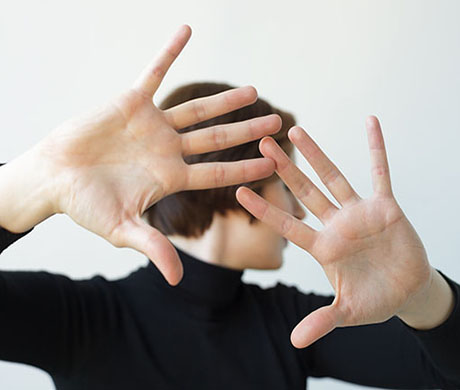Dopamine Can Create an Avoidance Habit. Here's How.

In Anxiety – A Neurochemical Feedback Loop, I wrote about some of the effects of the neurochemical cortisol when our brains perceive a threat, real or imagined:
1) It prepares the body to take action
2) It alerts us to more danger (and causes us to perceive things as more threatening than they actually may be), and
3) It helps us remember the threat so we can respond more quickly and automatically in the future
This is the brain doing its job to keep us alive and free from harm and pain.
It makes us feel bad – urgency, fear, dread, worry – so that we will take action to meet a survival need. It could be something that threatens our physical survival (a predator), but it could also be that we are feeling threatened emotionally (being humiliated or afraid that we will be judged or laughed at). No matter the threat, cortisol is released to help us take action to avoid it.
There is another part to the equation though.
Dopamine is a “feel-good” neurochemical that is released when we take a step toward meeting a survival need.
Let’s say I have a fear of public speaking and that I once went to an annual event where I was put on the spot and had to speak in front of a lot of people. That experience created a lot of terrible feelings that I am not be eager to experience again.
Now the event is coming up and a friend wants to know if I am going.
When I think about the last time I went, I am flooded with those same neurochemicals that were released when I was put on the spot. My cortisol levels rise, telling me to take action to protect myself from the pain of possibly being on the spot again. I sit with it, think about it, and decide to make other plans so that I have an excuse for not going. I feel a surge of relief (dopamine) rewarding me for avoiding something potentially dangerous. I may even feel virtuous, telling myself I am honoring my needs.
And it is true, in the moment I am, but what are the long-term consequences? What has really happened here?
On a neurochemical level, I got a dopamine reward for responding to the urgency of a potential threat. What also happens, though, is that I just got rewarded for avoiding something that was not necessarily a survival threat. Like cortisol, dopamine helps me remember how I got the need met so I can get it more automatically in the future. Over time, if this gets extrapolated to other social situations and I continue to “honor my feelings” about scary situations, I can actually develop a habit for avoiding things that are scary because dopamine tells me I have done something good by not going and helps me to repeat the behavior to get the reward in the future.
So, what is the solution?
The first step is being able to reduce your cortisol and calm your nervous system. The next step is to recognize that dopamine is making you want to avoid the situation and ask the question, “Is there another way to meet this need?” Maybe it is talking to the host of the event and letting her know how uncomfortable you were at being put on the spot. Or maybe it is finding out what the agenda is so that you have a heads up and can prepare.
Either one of these is also taking a step toward meeting the need of not wanting to be embarrassed. Every time you make a step to meet a need you get a dopamine reward. Over time you can learn to associate that dopamine reward for honoring those feelings in a more empowered and sustainable way.
